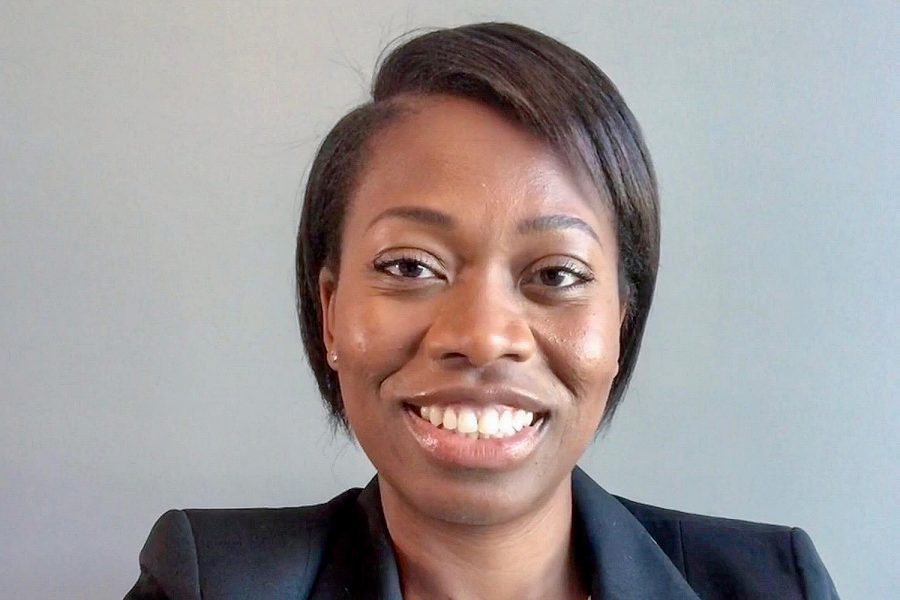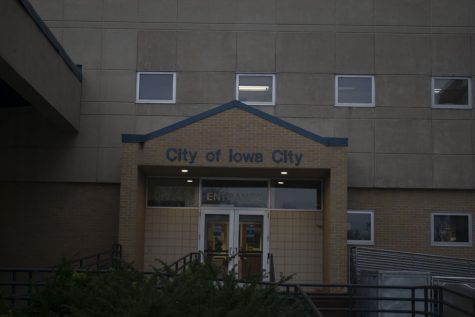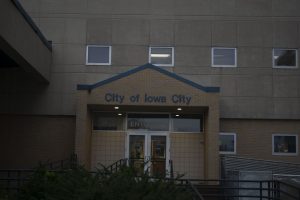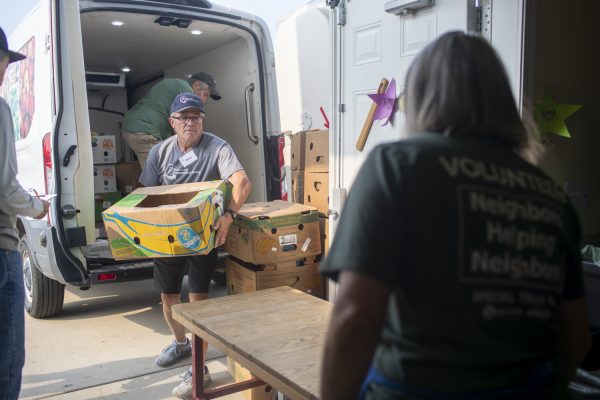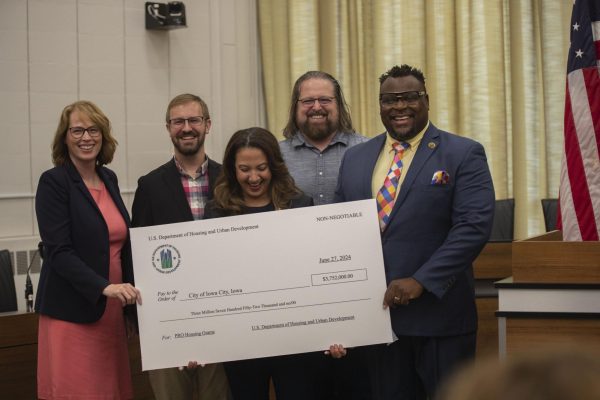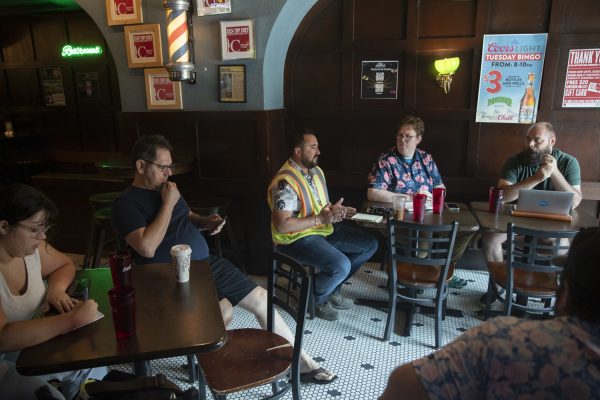Hospitality in the hospital: College of Public Health alumni making a difference for barbershops
Carol Ayangbile started with an ambition to be a physician, but ended up focusing on increasing African Americans’ trust in the health care system.
March 9, 2021
Diversity, equity, and inclusion are goals Carol Ayangbile has always strived to accomplish in her years working in health care, after attending the University of Iowa for graduate school.
Since she was four years old, she has known she always wanted to be a physician. But that trajectory changed when her mom became ill and had multiple brain surgeries.
“I chose to hang back and just help take care of [my mom], but during that process, she spent over four months hospitalized from the ICU through the different medical floors all the way to the rehab floor,” she said.
During her experience working with her mother’s neurosurgeon and other members of the care team, she decided she wanted to be one of the people who helped make that all possible, which led her to pursue a master’s degree in health care administration at the UI.
Ayangbile said she postponed medical school for a year and was supposed to start the year that her mom was hospitalized. At that point, she decided to do something else in health care, and hospital administration was the route she wanted to take.
“Wanting to go to med school and having physicians in my family was something I thought I could relate to … yet on the other side of things needing to make strategic decisions, where you are needing to really collaborate and come together,” she said.
In addition to working in hospital administration, she said she was a part of a patient experience team at UnityPoint Health in the Quad Cities. In that position, she started an initiative called “Medicine in the Barbershop” in late 2019.
“I would interact with patients from all walks of life,” she said. “I just noticed that there was inherent distrust in the health care system from African Americans, and that is something that I had not really encountered or had light shed on prior to.”
Ayangbile called this an “a-ha” moment for her. African Americans are generally at higher risk for conditions such as heart diseases, stroke, cancer, asthma, influenza and pneumonia, and diabetes, according to the Office of Minority Health, a segment of the Department for Health and Human Services.
“The development of the program was to provide education to the barbers about the top five health conditions that were chronically impacting the African American community based on a community needs assessment,” she said.
For African Americans, Ayangbile said, going to the beauty shop or the barbershop is a place of community.
“You talk to your barber or beautician about things you might not even talk to your family about,” she said. “That is sort of the history in the African American Community.”
Ayangbile said she and her team talked with local barbers and beauticians in the Quad Cities to share her vision and ask if they would be comfortable with the initiative.
“Some were hesitant, which is reflective of what you see with health care and African Americans,” she said.
Ayangbile said the overall goal was for these barbers to have these conversations in the chair at the barbershop. She said the UI College of Public Health wanted to make that happen by offering a grant this year for the project.
“Oh, we were excited because like with anything else, you have to have some money behind it, and it was at least a way to be able to resource materials for the education for the barbers,” she said.
Ayangbile said she currently works at Agilon Health, where she is the Senior Director of Patient Experience, and also sits on the alumni board for the Master’s in Health Care Administration program at the UI.
She also founded the diversity, equity, and inclusion committee on the alumni board, of which she is the vice president.
“I, along with another board member, introduced that we really needed t.o have a focus around DEI for our program, and the program really needed to reflect the communities in which the future healthcare administrators would be working within,” she said.
RELATED: UI professor publishes book about his role in researching, publicizing toxic-shock syndrome
Before Ayangbile worked in health care, she was a student of UI Department of Health Management and Policy Associate Professor Thomas Vaughn.
“While she was a solid student, what really surprised me was her maturity,” he said.
Vaughn said Ayangbile kept in touch after graduating, trying to find ways to stay involved in the Master’s in Hospital Administration Program. He said he was pleased when she joined the alumni board a few years ago.
Director of Student Services and Academic Program Support for the College of Public Health Gwendolyn Archibald said she has worked with Ayangbile in the college’s higher education department.
“Through her work on the alumni board, she has been instrumental in the creation of the diversity and inclusion committee within that group,” she said.
Archibald said the college is extremely fortunate to have Ayangbile working with it on some of its most important topics.
Looking at how diversity, equity, and inclusion are implemented on the UI campus, Ayangbile said she thinks it is really key that momentum continues and that there is a lot of very earnest and sincere efforts around that.
She said it is important to make sure the voices of the people within the university whom the decision does impact are captured, so that the design of it has them in mind.
“COVID-19 really showed and taught us that there are major health disparities,” she said. “That is something that needs to be addressed along with social determinants and how that impacts a person’s ability to be healthy, to seek care, and even just that access to care exists within all communities and not just certain communities.”



